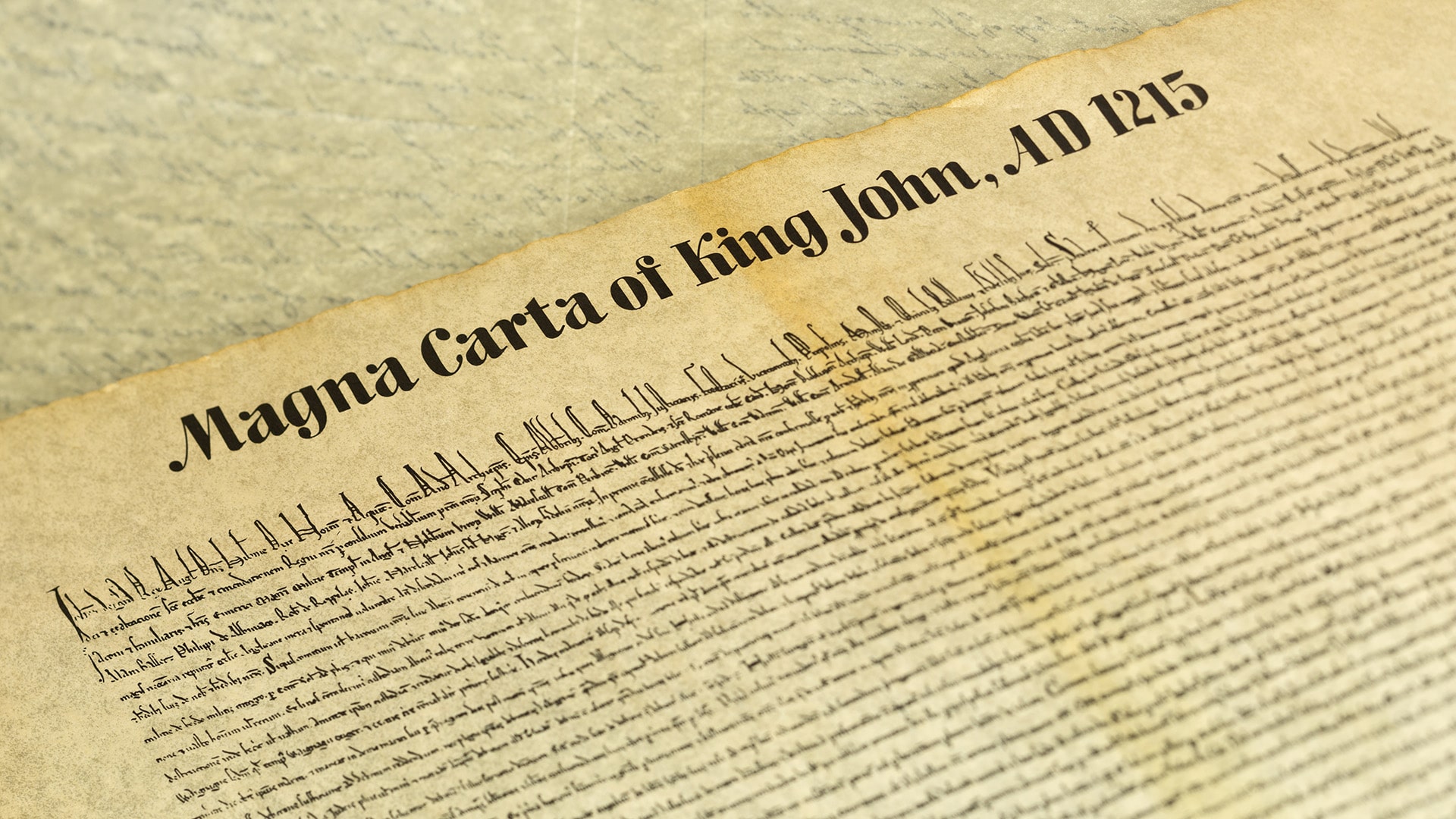Table of Contents
Introduction
The Magna Carta, Latin for “Great Charter,” is one of the most influential documents in history. Signed on June 15, 1215, by King John of England under pressure from his rebellious barons, the Magna Carta laid the foundation for constitutional governance, the rule of law, and individual liberties. Its principles have resonated through the centuries, shaping the development of democratic institutions and human rights worldwide.
Historical Context
In the early 13th century, England was in turmoil. King John’s reign was marked by military failures, heavy taxation, and conflicts with the Church and his barons. His defeat in the Battle of Bouvines (1214) exacerbated discontent among the nobility, who were frustrated by his arbitrary rule and financial demands. In response, a group of barons rebelled and forced the king to negotiate.
The Magna Carta was drafted by Archbishop Stephen Langton and the barons as a peace treaty to limit the king’s powers and protect feudal rights. It was sealed at Runnymede, a meadow by the River Thames, and although it initially failed to prevent civil war, its significance grew over time.
Key Provisions
The Magna Carta contained 63 clauses addressing various grievances. While many clauses were specific to medieval feudal society, several principles have enduring relevance:
- Rule of Law: The Magna Carta established that the king was not above the law. Clause 39, for example, states that no free man shall be imprisoned, dispossessed, or harmed except by the lawful judgment of his peers or by the law of the land. This principle laid the groundwork for due process and legal accountability.
- Limitation of Arbitrary Power: The charter curtailed the king’s ability to levy taxes without the consent of his barons, a precursor to the idea of no taxation without representation.
- Protection of Rights: While initially intended for the barons, the Magna Carta’s protections gradually extended to all citizens, influencing the development of universal human rights.
- Justice and Fairness: The charter emphasized the right to a fair trial and access to justice, principles that remain central to modern legal systems.
Short-Term Failure, Long-Term Legacy
Initially, the Magna Carta was a failure. King John repudiated it shortly after signing, and the barons’ rebellion continued. However, after John’s death in 1216, the charter was reissued by his successors, and its clauses were revised and reaffirmed in subsequent years. By the 17th century, the Magna Carta had become a symbol of resistance against tyranny, cited by figures like Sir Edward Coke and used to justify the English Civil War and the Glorious Revolution.
Global Impact
The Magna Carta’s influence extends far beyond England. Its principles inspired foundational documents such as the United States Constitution, the Bill of Rights, and the Universal Declaration of Human Rights. Key ideas like habeas corpus, due process, and the limitation of governmental power can be traced back to the Magna Carta.
In the United States, the Founding Fathers viewed the Magna Carta as a precedent for their struggle against British rule. The Fifth and Fourteenth Amendments to the U.S. Constitution, which guarantee due process, echo the Magna Carta’s language. Similarly, the charter’s legacy is evident in the development of constitutional democracies worldwide.
The Magna Carta Today
Today, the Magna Carta is celebrated as a symbol of freedom and justice. Of the original 1215 version, four copies survive, housed in the British Library, Salisbury Cathedral, and Lincoln Cathedral. In 2015, the 800th anniversary of the Magna Carta was commemorated globally, highlighting its enduring relevance.
While the Magna Carta was a product of its time, its core principles continue to inspire movements for justice and equality. It reminds us that the struggle for liberty and the rule of law is ongoing and that the power of government must always be balanced by the rights of the people.
Conclusion
The Magna Carta’s journey from a medieval peace treaty to a cornerstone of modern democracy is a testament to its profound impact. It represents the enduring human desire for fairness, accountability, and freedom. As we navigate the challenges of the 21st century, the Magna Carta’s legacy serves as a reminder of the importance of upholding these timeless values.
MORE TO READ BELOW…;
The Danelaw, a term used to describe the region of England under Viking control during the 9th and 10th centuries, is often remembered as a period of conflict and cultural clash. However, beneath the surface of this well-known narrative lie untold truths and lesser-known events that reveal a more complex and nuanced story. This article delves into the hidden histories of the Danelaw, exploring its impact on law, culture, and society in ways that are often overlooked.
The Danelaw: More Than Just Conquest
While the Danelaw is frequently associated with Viking raids and military conquest, its establishment was also a result of negotiation and coexistence. The Treaty of Wedmore in 878, following Alfred the Great’s victory at the Battle of Edington, formalized the division of England into Anglo-Saxon and Viking-controlled territories. This treaty not only ended hostilities but also allowed for a period of relative stability and cultural exchange.
Legal Innovations and Governance
One of the most significant yet underappreciated aspects of the Danelaw was its influence on English legal systems. The Vikings brought with them their own legal traditions, which were integrated with local Anglo-Saxon customs. The term “Danelaw” itself refers to the “law of the Danes,” highlighting the distinct legal framework that emerged in the region.
The Danelaw introduced concepts such as jury trials and communal decision-making, which later became foundational elements of English common law. The Thing (or Thing), a Viking assembly where disputes were settled and laws were made, served as a model for local governance and influenced the development of parliamentary systems.





2 thoughts on “The Magna Carta: An Important Cornerstone of Modern Democracy”
Comments are closed.